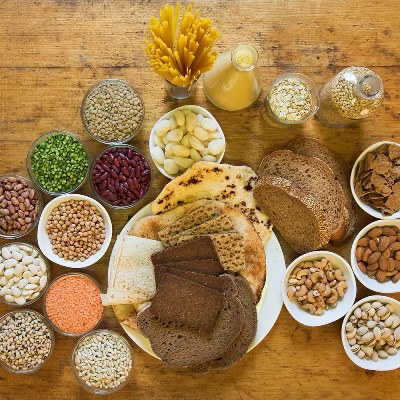Health benefits of dietary fibre vary according to the type and dose of fibre, as reported in a new study published in Cell Host & Microbe (28 April 2022). Experts call for better understanding of different fibre strains and the need for effective doses to help stem the tide of fibre deficient diets, which may have a negative effect on our health, as gut health problems in Australia continue to soar.
The study’s geneticist authors demonstrated that ‘the physiological, microbial, and molecular effects of individual fibres differ substantially’. Each microbe eats a different type of dietary fibre, and each diet contains a different mix of fibre. This means that getting the recommended daily fibre intake and introducing fibre diversity to our diet is key to maintaining a healthy gut.
According to the CSIRO, one in seven Australians reportedly experience adverse gut health conditions and the Department of Health Victoria reveals that one in five Australians are experiencing unpleasant symptoms of irritable bowel syndrome (IBS). Experts are shining the spotlight on the importance of diverse fibre intake to support optimal health outcomes. Natural fibre supplementation, dietary changes, and a low FODMAP diet are all strategies that can be adopted to support individuals suffering from chronic gut conditions such as IBS.
The National Health and Medical Research Council (NHMRC) suggests that the total adult dietary fibre intake should be 25-30 grams a day. However, only 28% of adults in Australia are consuming enough fibre to keep their gut function in good order.
“With our busy lifestyles, poor eating habits and the lack of quality fibre within most processed diets, this stat is not a shock. To meet the recommended quota, we should be eating a significant amount of high fibre food choices, equal to four slices of wholegrain bread, five apples, twenty-five almonds, one cup of mixed vegetables, and two whole-wheat cereal biscuits in one day” says nutritionist Brittany Darling.
Nutritionists agree that not all fibre is created equal. Quality fibre consumption consists of a variety of fibre types from a variety of sources covering soluble, viscous gel forming, insoluble and prebiotic fibres.
“Soluble fibre is essential for collecting waste products and eliminating them from the body. Insufficient soluble fibre means toxins get reabsorbed in the intestines and recirculated through the body, which may
cause health problems.”
“Insoluble fibre adds bulk to enable the removal of toxins and waste through the bowel. It also absorbs water to help soften our stools and support regular bowel movements,” she said.
“Viscous gel-forming fibre promotes fullness and helps bowel lubrication.”
“Prebiotic fibre feeds the friendly bacteria in your gut. Most prebiotic fibres are soluble, but some may also be insoluble fibres.”
Dione Promm, Head of Science at Nu-Lax, Australia’s expert natural digestive health brand, recognises the importance of a variety of dietary fibre in supporting good gut health and its positive contribution to overall health and wellness. “The unique formulation of the Nu-Lax Natural Multi-fibre product combines all the essential dietary fibre types, to help Australians improve their daily intake, especially those who suffer with existing conditions such as IBS and who may require FODMAP friendly sources”.
“The goal is to get the right ratio of these four combinations” says Brittany.











